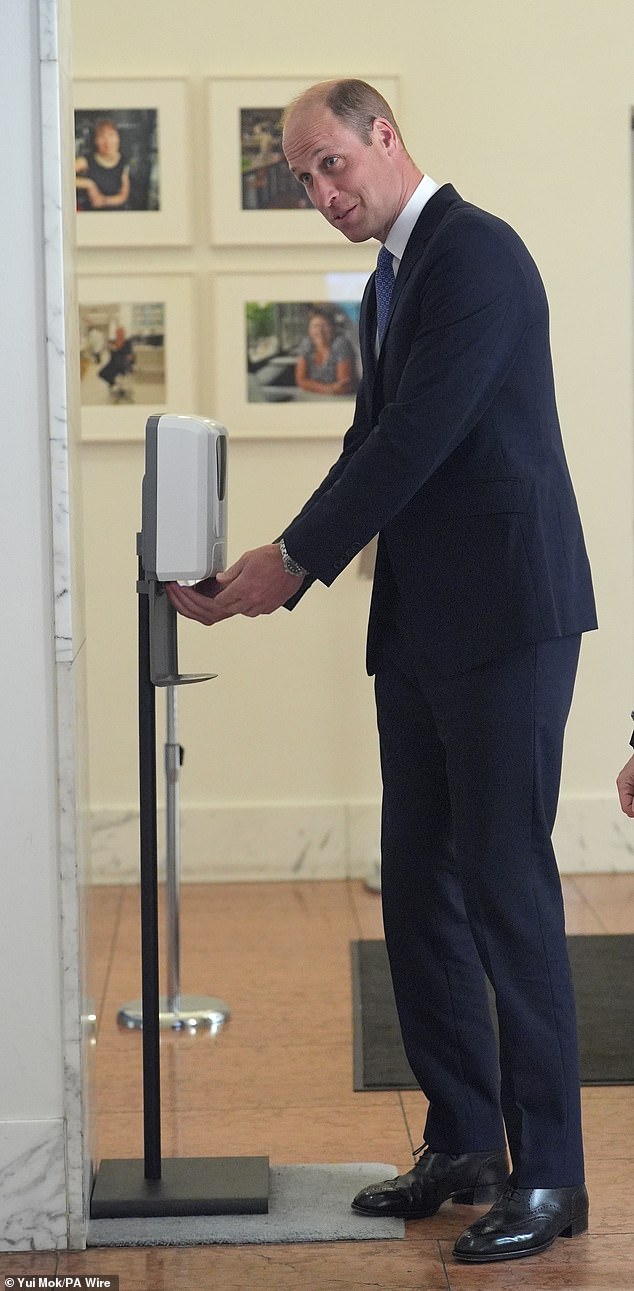Prince William today gave a speech on antimicrobial resistance in which he urged people to “act now” to protect the next generation.
Just before the Prince of Wales entered the talk, located at the Royal Society in London, he stopped at the stand and put on some hand sanitiser in an attempt to kill the germs.
The future king, 41, smiled as he rubbed his hands while chatting with those attending the event.
The father-of-three looked dapper as he arrived in a black suit, paired with a crisp white shirt and blue patterned tie.
The event was organized to celebrate global efforts to address antimicrobial resistance and build stronger health, food security and climate resilience systems.
Prince William attended an event in London today about antimicrobial resistance
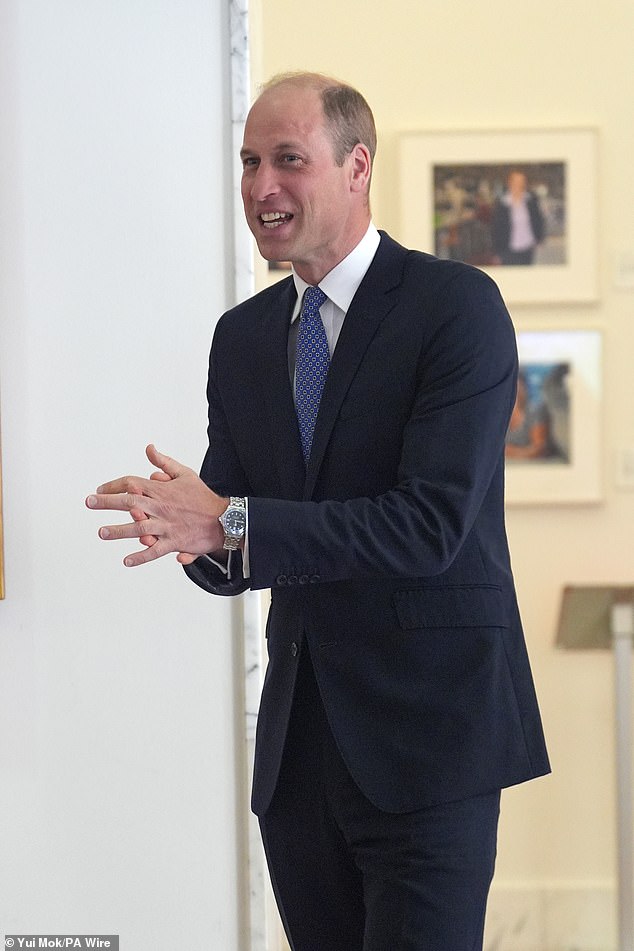
The father of three smiled as he rubbed his hands while chatting with attendees at the event.
Antimicrobial resistance occurs when microbes that cause infections develop resistance to treatments such as antibiotics and, as a result, infections become difficult or impossible to treat.
This can lead to an increasing risk of disease spread, serious illness, disability and death.
The Prince interacted with those who attended the meeting, greeting them and shaking their hands.
William, sponsor of the call to create the Fleming Initiative, gave a short speech at the event.
He said: ‘As we heard this morning, antimicrobial resistance threatens our health, our environment, our livelihoods and our future.
‘It is indiscriminate and affects all countries and all income levels. And we know that poverty and inequality intensify their reach, with the poorest parts of the world being particularly vulnerable.
‘It makes infections harder to treat, increasing the risk of disease spreading and making medical procedures and treatments much riskier.
“There is an urgent need for new measures to access new and existing vaccines, diagnostics and medicines.”
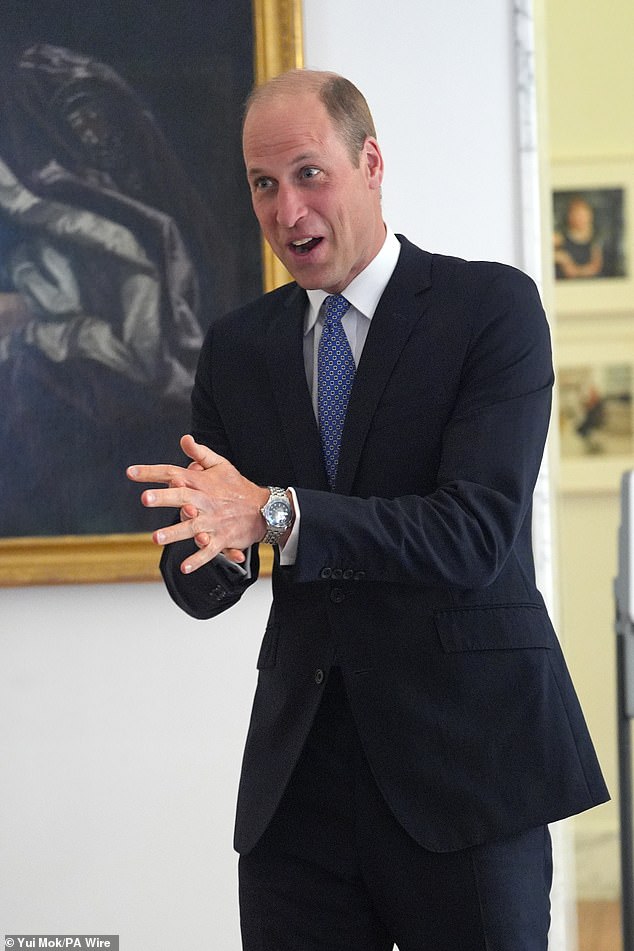
The father-of-three looked dapper as he arrived in a black suit, paired with a crisp white shirt and blue patterned tie.
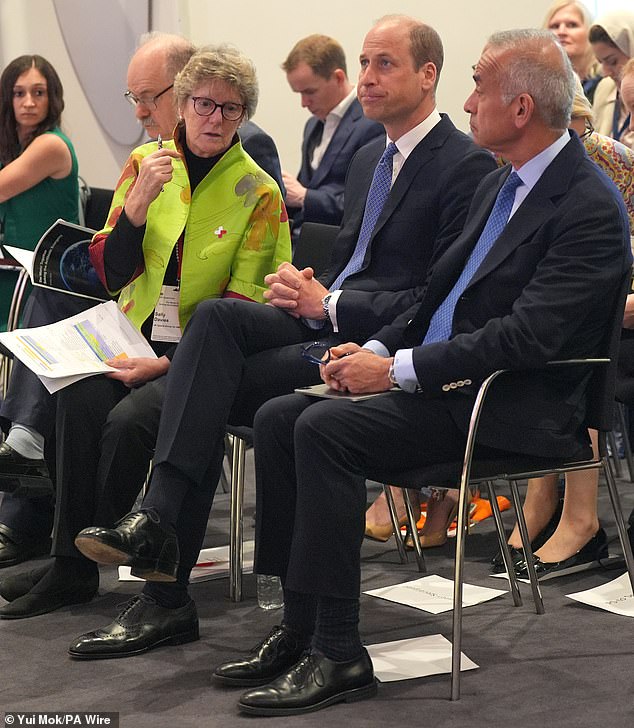
The Prince participated in the talk where survivors of the disease told their experiences
William then talked about the impact that microplastics in the ocean and global deforestation have on bacteria.
He said: ‘Rivers are contaminated with antibiotics and oceans are full of microplastics containing resistant bacteria.
‘Meanwhile, deforestation is wreaking havoc on ecosystems, facilitating the emergence of new infectious diseases.
“Unless we act now and together, the ripple effects of drug resistance will be felt for generations, endangering the well-being of our children and grandchildren.”
He went on to say that he was “hopeful” because of the “efforts and expertise” of those trying to help address the issue.
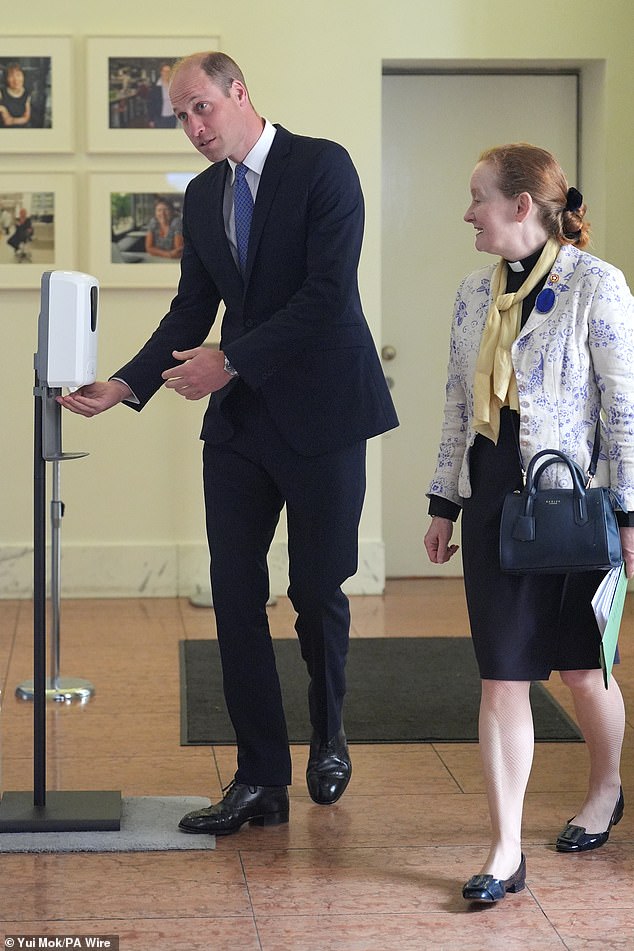
Prince William removed germs from his hand by applying hand sanitizer at today’s event
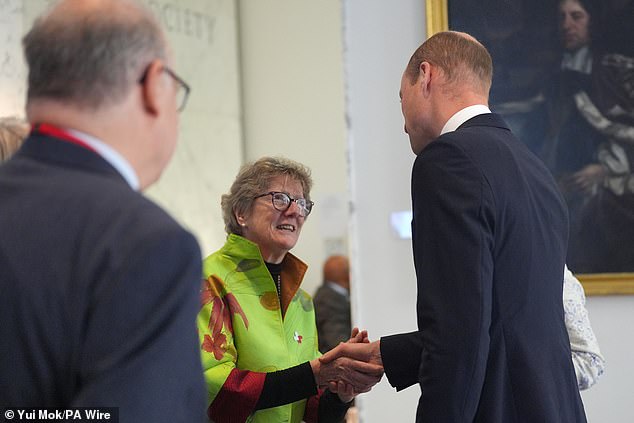
The smiling Prince interacted with those who attended the meeting, greeting them and shaking their hands.
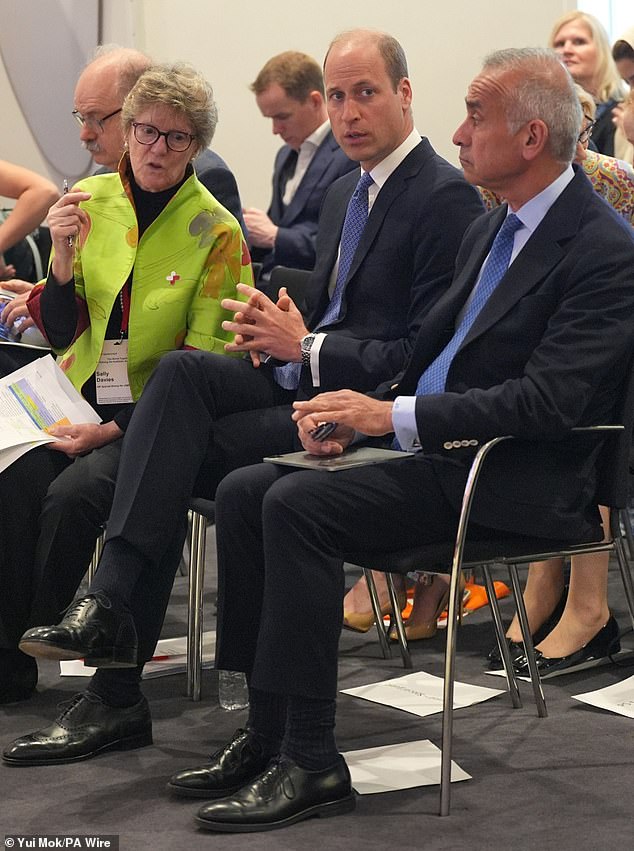
William, sponsor of the call to create the Fleming Initiative, gave a short speech at the event.
William also spoke of his excitement about the opening of a new Fleming Centre, in Paddington, in 2028.
He described it as a “place of collective action” that will bring together world-class scientists, doctors, behavioral researchers and policymakers to test solutions that will keep “global drug-resistant infections” at bay.
The future monarch ended his speech firmly and said: ‘Today I invite you once again to act.
“Create a true legacy in 2024, for the sake of the millions affected now by antimicrobial resistance and for the sake of generations to come.”
During the event, survivors of antimicrobial resistance also spoke about their experiences with the disease.
In the evening, the Prince will also host a private reception at St. James’s Palace for those attending the conference.
Ministers from the Commonwealth and around the world, representatives of United Nations organizations and antimicrobial resistance advocates attended the event, the largest global moment on antimicrobial resistance since 2016.
Last week, Prince William went to Cornwall to see a piece of land he hopes to develop to help the homelessness crisis in the UK.
William, known as the Duke of Cornwall when he was in the county and took over the £1.2bn Duchy of Cornwall estate when his father became king, is in the process of building his first housing project in Nansledan.
Announced earlier this year, the project will run alongside Cornish charity St Petrocs and will provide 24 homes with wraparound support for local homeless people.
The land for the homes will be provided by the Duchy of Cornwall, which will also use its management expertise to guide the delivery of the overall project.
The Duchy of Cornwall is the ancient estate that provides public and private income to the heir to the throne.


